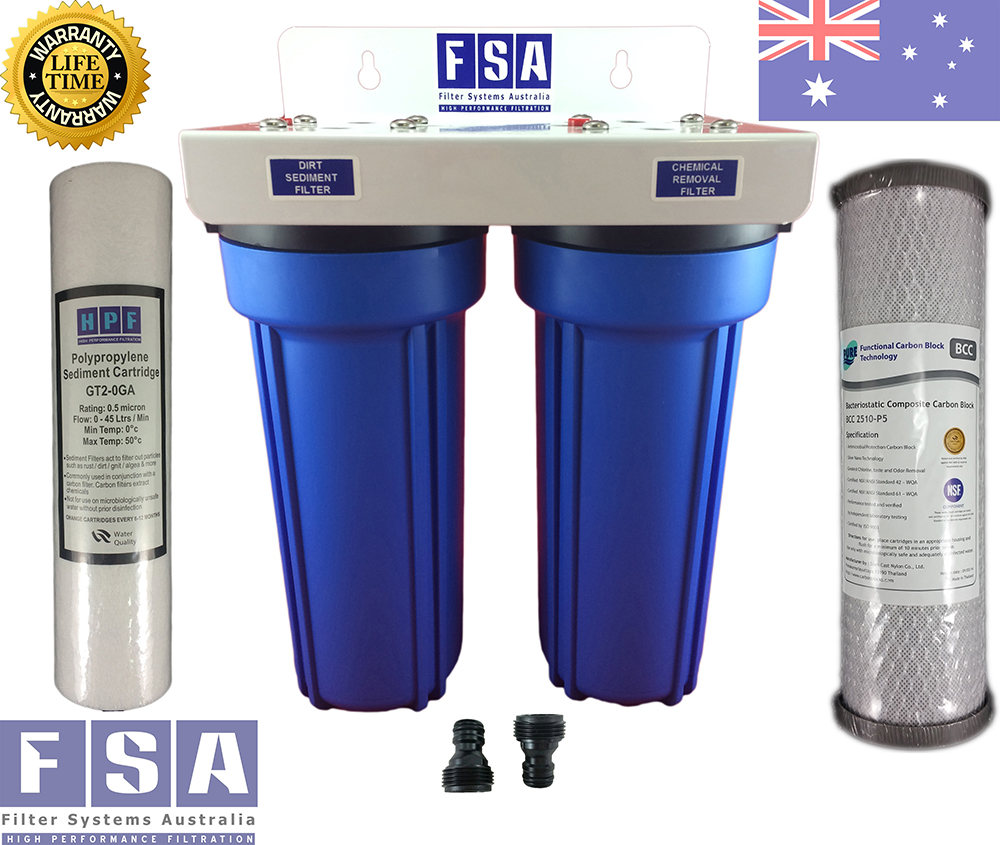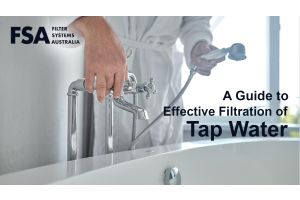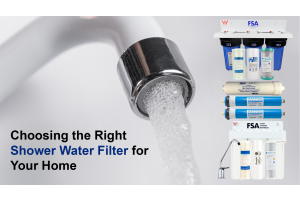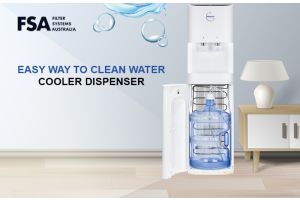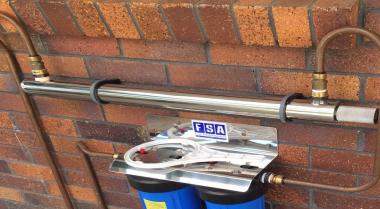
Are you sure your tap water safe to drink?
Tap water in the vast majority of Australian cities and towns is considered clean and safe to drink. However, many of the chemicals and disinfectants added to drinking water by public waterworks can interfere with human bodily functions and can affect your health.
Some of the common impurities or toxins present in tap water that can take a toll on your health include:
- Chlorine: Though used to combat microbial contamination and disinfect water, reacting with organic matter in the water, chlorine forms poisonous by products such as Trihalomethanes (THM), which are harmful for human health.
- Fluoride sure has dental health benefits but it is also a neurotoxic chemical that can affect human health wen consumed in high concentrations.
- Heavy metals such as lead, copper and aluminium that can harm your immune system and are linked with stomach pain, digestive discomfort, vomiting and diarrhoea.
- Pharmaceuticals such as antibiotics and hormones added by the water supply can have adverse health effects.
- Microorganisms, bacteria and viruses.
Steer Clear of Waterborne Disease
As mentioned above, your drinking water may contain a number of contaminants and chemicals that are deliberately added to make it potable but can harm your health in several ways.
Besides, pathogenic microorganisms found in pre-treated or inadequately treated drinking water can cause waterborne disease like cholera, typhoid fever, malaria, dysentery, Hepatitis A or E and diarrhoea.
To keep these waterborne diseases at bay, it is important to make sure your drinking water is clean and pure.
Here are a few additional tips to prevent waterborne disease from affecting your health:
- Drink only filtered water.
- Store water properly in a hygienic container.
- Wash vegetable and fruit thoroughly with filtered water before cooking.
- Always wash hands with clean water before and after preparing food or eating.
- Consume warm and home cooked foods while avoiding street foods.
- Always store foods/beverages covered.
- Ensure proper maintenance of the pipes and tanks in your home that supply drinking water.
- Consider carrying your own bottle of filtered water when travelling.
What are your water treatment options?
When it comes to ensuring purity and safety of drinking water, there are a multitude of water treatment systems in the market that improve the quality of water by eliminating unwanted chemicals and contaminates.
But before we talk about varied water treatment solutions, let’s first understand the difference between water purification and water filtration.
Water Filtration Vs Water Purification
In the simplest term, water filtration is the process of eliminating impurities in the water. An efficient drinking water filter would remove all the contaminants in the water while keeping the important salts and minerals required by the body. Boling and carbon filters are common ways to filter water and rid it of unwanted particles.
Water filters are usually small in size and focus largely on removing impurities. While filtration systems can eliminate the tiniest impurities in the water such as microbial cysts and bacteria, you can’t count on a water filter to treat viruses.
Water purification, on the other hand, is the process of making water safe for drinking y removing all kinds of impurities including bacteria, viruses, toxins chemicals and biological contaminants. Water purification mainly uses three technologies; distillation, deionisation and reverse osmosis.
To conclude, water filters are good at removing a small spectrum of contaminants while purifiers are designed to disinfect water and improve the overall quality by stripping out all unwanted constituents. However, simply filtering or purifying water will not make it absolutely safe for drinking. You must find the right combination of a filters and purifiers.
Here a are three common water treatment choices you could consider ensuring the availability of safe and pure water in your home:
Carbon filters:
These filters use activated carbon to remove mainly sediment, chlorine, organic compounds while improving the taste and odour of the water. Carbon filters are not effective at eliminating salts, minerals and dissolved organic compounds.
Reverse Osmosis Systems:
Reverse osmosis is a popular water purification technology that flushes water through a semipermeable membrane separating out ions, molecules and larger contaminants. It also removes the odour and taste from drinking water.
UV Filters:
As the name suggests, UV filters use ultraviolet radiation to treat water. It is usually used in combination with other water treatment systems such as carbon block filters or RO systems.
Let us help you enjoy all the health benefits of water
At filter system Australia, our commitment is to provide you with cutting-edge water purification solutions that can truly be counted on. We carry a range of water filters and purifiers that do more than simply filtering your drinking water. Our products are designed to provide taste, odour and nourishment that untreated tap water lacks.

